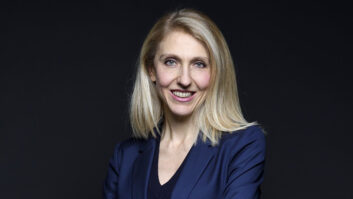
With 73 Members in 56 countries worldwide, the European Broadcasting Union aims to strengthen public service media and services and offer its members a center for learning and sharing. Radio World spoke to Graham Dixon, the organization’s Head of Radio, about the state of the radio industry today, its achievements, evolution and challenges.
Radio World: You have been the EBU’s Head of Radio since September 2015. What are a few of your main goals in this role?
Graham Dixon: “Making radio modern” is a phrase I often use. It’s useful since it provides a basic point of agreement with international colleagues, but also covers a vast number of areas. For me, it definitely means encouraging the rollout of digital and hybrid technologies, offering a richer listener experience, but it also means connecting with contemporary society, listening to audiences, understanding their needs, and meeting them more effectively. So the role is about promoting radio as a flexible, digital medium; bringing colleagues together to share expertise, and collaborating to make sure that great, unique content is made available to broadcasters.
RW: Can you briefly outline key projects and activity recently completed or in progress?
Dixon: “Briefly” is a challenge, we have so much going on. At the moment, we have just had a successful meeting of the European Digital Radio Alliance, a grouping of broadcasters with whom we are partnering to promote digital radio. Last week, we brought together the directors of youth channels for the first time to share strategic information. We are working with broadcasters from the Middle East and North Africa to prepare a music offer on the theme of Ramadan, and looking forward to a partnership with the youth music festival, Tomorrowland in Belgium. We also brought together European broadcasters to follow the dawn chorus, a symphony of birds, live on air at the beginning of May. All this comes against the background of a regular round of learning opportunities, seminars and meetings, as well as over 3,000 concerts made available to members each year.
RW: What has notably changed in the industry since you started your career in radio?
Dixon: Almost everything. The medium is simply more flexible, resilient and frankly exciting than we ever realized in the linear-only world. On-demand listening, clips and tagging, the ability to provide supplementary information, all this provides a richer listener experience. But also, I think that increasing competition for people’s time has meant that broadcasters are far more focused on listener needs, this has been extremely positive.
RW: What do you see as the greatest problems or challenges facing radio broadcasters today on both a global and local basis?
Dixon: Many public service broadcasters are facing major financial issues, which may limit their contribution to society. Public media is funded in a unique way because the service it offers is unique. While audience numbers are undeniably important, they are not the primary driver, and public media must retain the funding and the freedom to be able to take risks in programming, reach out to the widest possible audience, ensuring that there is universal access to impartial information, as well as to cultural and sporting events which bring our societies together and define their identity.
RW: What industry developments do you expect (or would you like to see) to take place in the near future?
Dixon: We are working hard for the implementation of digital radio across Europe, which would future-proof the universality value that I have spoken about, making radio available to all — rich or poor — without gatekeepers, data packages and subscriptions. It can also stimulate more creativity, since additional spectrum provides for new channels, including short-term pop-ups, which gives space for experimentation and innovation. The EBU New Radio Days annual event shows how dynamic this sector can be, and extra space to experiment and reach the public in new ways is a massive boon.
RW: What major technologies are affecting the radio industry in Europe and abroad?
Dixon: Clearly digitization of radio is important, as I have said earlier, to provide a completely stable and reliable information source that will survive the IP outages, which occur at moments of national crisis. That said, the internet is fantastically important and offers so many new possibilities, particularly asynchronous listening and supplementary data. All of this is exciting, but clearly the uniqueness of radio still lies in its liveness — commenting on the events of the day, and bringing shared experiences and events into your living room, kitchen and car.
RW: How is social media changing the way broadcasters approach their jobs?
Dixon: We need to use all the tools at our disposal to provide audiences with an enriched radio experience. Developing a sense of community, interacting with the station, accessing material on demand, all these are massively important to our audiences. Increasingly, radio broadcasting is not a one-way street, but is developing into a flexible and responsive medium, based on dialogue with listeners.












